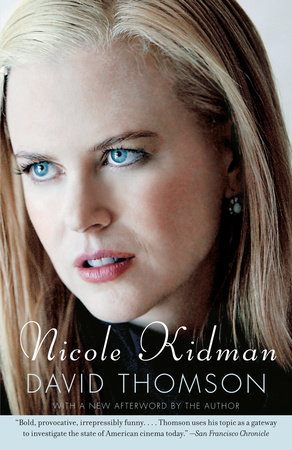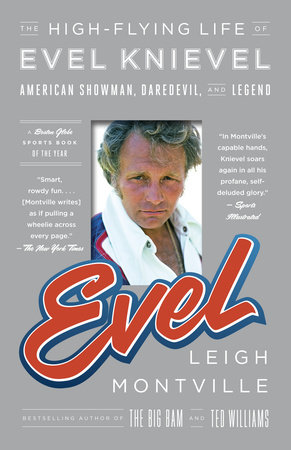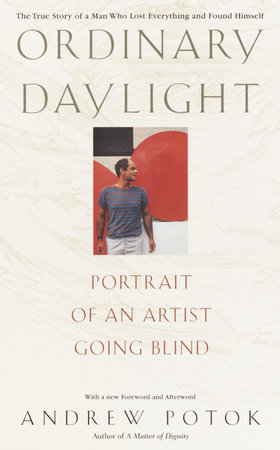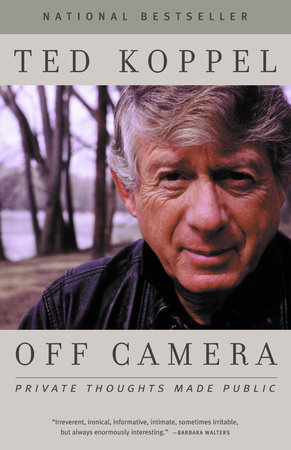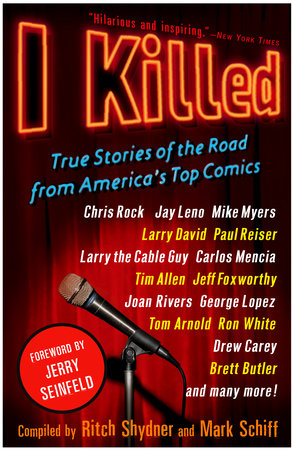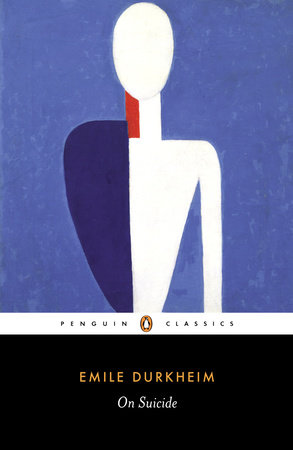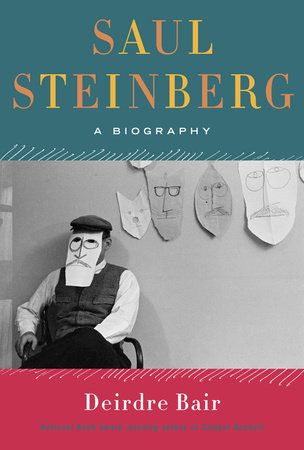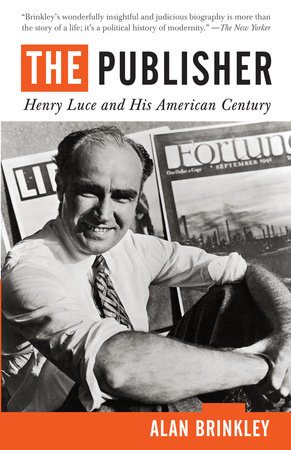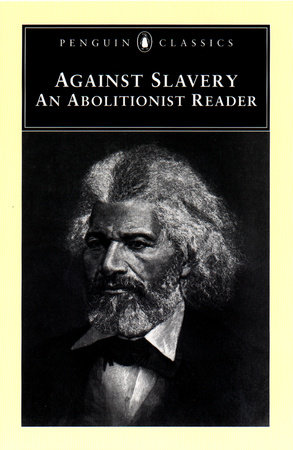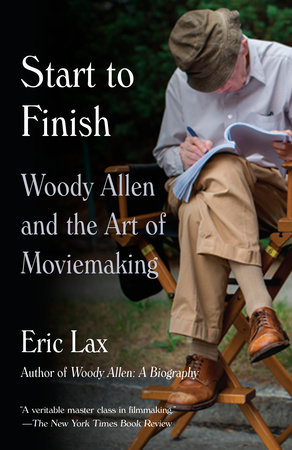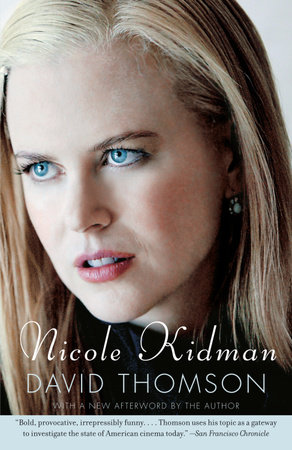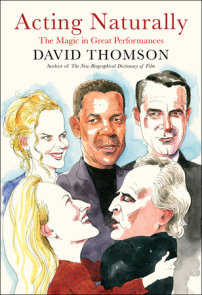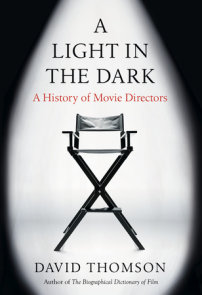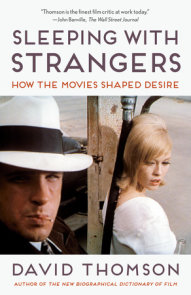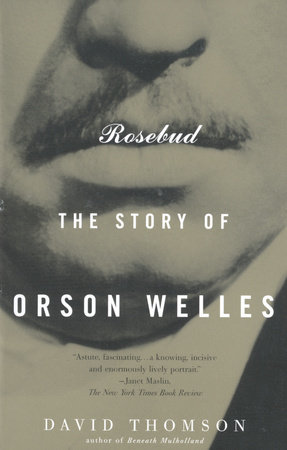Author Q&A
Q: You are a well-known film scholar and historian. Why did you decide to do a book about a movie star—and why Nicole?A: I think most people most of the time go to see movies because of who’s in them. We have always done this. And we have our favorites. We fall for movie stars when we’re very young. And I think critics often forget how vital the looks and persona of a star are. As for Nicole, I admired the way she had gone from being “Tom’s girl” and a bit of a joke, to a person who could get difficult films made. She took charge of her own career. Yet she still has huge appeal and charm and sexiness—she’s a natural flirt. That goes right back to the basis of film: find a pretty girl and photograph her. Plus she has the authentic aura of stardom. She glows. She is tall and thin and unquestionably beautiful. She’s not like us—until she smiles and you see there’s an ordinary side.Q: This book is more than simply an insightful analysis of one of the most famous actresses working today, it’s also a portrait of what it is to be an actress and the professional and personal choices one makes along the way. Did you set out to create that portrait or was it something that just happened?A: From the outset, I wanted it to be a book about acting, about film, and about actors putting on a show. Despite the way that, as a culture, we adore actors and actresses, I still think that we don’t understand what a rare breed they are—how their becoming “parts” for us, strangers, means running the risk of losing themselves. From the moment I began to know actors, I found this process frightening, yet magical. I think of them as explorers of the inner life. But like geographical explorers—people who go out into far and strange spaces—sometimes they don’t come back. They get lost. It’s not uncommon, but I think Nicole has made a pledge to be other people—and along the way she becomes just the actress, the player. Her real self fades. Maybe she is doing what she does because she was always afraid of being no one—of being empty. You can romanticize taking on another person, but it’s actually a fearsome challenge, because you lose yourself. Your whole life is dedicated to pretending. Now, if you put it like that, it sounds unpleasant or uneasy—something we don’t really want to be part of. I couldn’t quite get into this—or not directly—but I think already there’s a way Nicole Kidman isn’t quite there. She’s “Nicole.” She is the part. Her husbands and children must sometimes look at her and marvel that they have this great light as their wife or mother! This is so hard to talk about when people are still alive—but I’ve tried to imply it. And for her the sacrifice is the risk of your whole life slipping away for maybe thirty seconds here or there of eternity that has your name on it. By normal, humanistic standards, it’s a shameful bargain, but it’s what actors do.Q: The book is also a study of what happens to the audience, the spectator, and you talk about the importance of the actor and the spectator remaining strangers for the “magic” to work. Why is that critical?A: Well, it follows directly from the previous question. To watch actors from our vantage point—the ideal one—is to see the best: the beauty, the smarts, the ability to deliver another character—a whole story. That is how they move us. And so we fall for them, love them. But that’s a danger because, as I’ve said, there is so much less there than meets the eye. They do not have their own inner life. They wait to create imaginary ones. And they are only really happy when doing that. This may sound extreme, or even comic, but look at the celebrity of famous actors and you see it time and again. That is why someone like Katharine Hepburn—and it’s why I talk about her in the book—gave off this image of her famous self that was actually impenetrable; she was very ambitious to be an actress, which wasn’t necessarily her.Q: At the beginning of the book, you quote a woman as saying she’s known Nicole for 20 years but doesn’t really “know” her because a lot of actors “don’t exist when they aren’t playing a part.” Do you think that’s true of most actors and of Nicole, in particular?A: I think it’s generally true of actors. They are friendly quite often, but there isn’t a large, unknown persona there. All that energy goes into being other people. I think it’s true of Nicole to the extent that she is very ambitious and determined. It’s not that she does all this to secure some private, inner being. She does it to be other people and to be loved and admired by strangers. So if you get close to her you find that odd inner emptiness which doesn’t fit with what she gives you as an actress—that sense of a great secret depth. In a way, it’s the norm with actors. Yet it can sound frightening when spelled out. The really intriguing thing is how far the way we admire and adore actors is letting us become more like them. In other words, the actor has become a model for real life—and that’s one of the things accomplished by the age of film.Q: You talked to Nicole towards the end of writing this book and clearly she offered her own thoughts on what things meant to her. Were you surprised by her take on aspects of her career or the films at all?A: No. She gave me answers that I think she had worked out, answers she thought I wanted—actors try to give you what you want. And for me she was earnest, thoughtful, taking her profession seriously. I think it’s very rare for actors to be able to tell you what they do and she values her spontaneity. For instance, she prepares, she makes this journey into a part. It’s a very awkward journey which has to be done alone; she has to cut herself off from “company.” And then she starts to do things like the character she is becoming. She falls in love with her characters. I think that would be her major romantic passage in life. And I doubt she has much sex when she’s doing that. So, do you see, in a way the romance is always narcissistic: you are the person you love.Q: You talk about the film To Die For as an important turning point in her career, and the character of Suzanne Stone as bearing similarities perhaps to Nicole herself. What is it about that film and her role that makes this true?A: Above all, the determination to succeed and be known—to step out of life into that world of being “on.” She’s quite edgy about this because she realizes that Suzanne is not exactly a sweetheart. But as she talks about it, she can’t conceal her delight about Suzanne. She read that script and knew she was made for it. And the talking to the camera bits—which she found difficult—were actually the secret destination, the gift of the part. She saw that she could commune with the camera and own it. So in The Hours, say, where she plays a very unhappy and unworldly character, she has one advantage: the camera is there to watch her. There is stuff like that in Birth, too, where she seems to know: if I wait, the film has to wait for me. It’s power. Great stars have it.Q: You talk about the relationship between an actress and her director as being almost a platonic love affair. Is that usually the case?A: Time and again, something happens between directors and actresses. The whole process is built around it: the idea of their secret being shown to the world. And actresses often need to feel they are doing what they do for just one person—instead of millions. So a kind of romance occurs—platonic or not.Q: Unlike all the speculation over the years about the nature of Nicole’s marriage to Tom Cruise, you believe it was a real marriage and that they were very much in love. Do you think acting in romantic roles with other people is part of what damages a relationship with two such high-profile actors?A: I think one of the things that makes such unions hard is the speed with which the world makes up stories about them—Tom and Nicole went through the modern celebrity grinder in a rare way and it gets worse all the time. I do think they always saw how at first the other was “right” for them—in the public gaze. But I think they did their best to be really in love and have fun together. In time, I think she learned from him just what was required in taking charge of yourself. That’s what broke them up. She realized she could be as big as him if she became as strong and as self-centered. He wanted a beautiful, bright, obedient consort. She wanted a teacher. It worked. Then it stopped. And I think Eyes Wide Shut was the process that brought it to an end—because the characters they played were so close to themselves.Q: Which are your favorite films of Nicole’s? And your least favorite?Q: My favorites are To Die For, Birthday Girl, The Hours, Moulin Rouge, Dogville, Birth, and her new one, Fur. The ones I like the least would be Stepford Wives, The Interpreter, and Bewitched. In other words, I think she’s born to take risks—not play old-fashioned romantic leads. Her nature draws her to difficult, adventurous people, people for whom creativity is vital and may be self-destructive. It’s very interesting that she got married again just before Fur debuts—because Fur is about the need of a person like her to transcend marriage. The real marriage may be an attempt to deny or defy that. But there she is on screen wrapped up in finding a deeper self.Q: In your discussion of The Hours, you say that “this is a story in which every character and player is supporting the larger thread of the work. And it is an immense gift to the artistic conscience of actors to let them play small parts sometimes. There is no better education in the nature of drama or art.” Can you elaborate on that idea?A: In an ideal world, in a company of actors, there should be exchanges—i.e., an actor is engaged for a repertory season, and he plays two big lead parts, Hamlet and Antony, say. But he also takes on two smaller parts as well. Why? It’s a myth that there are bigger and smaller parts. All are as valuable as each other. And it is wonderful for equality in the company to swap roles like that. The whole enterprise is what’s important. And stardom is in many ways a dangerous and counter-productive system.Q: You compare Nicole’s taking on the experimental Lars Von Trier film Dogville to Ingrid Bergman’s romantic impulsiveness in going to Italy to make films with Roberto Rossellini. How are these adventures similar?A: Well, Bergman was a world star—she had done Casablanca, For Whom the Bell Tolls, Gaslight and so on. But she was a questioning actress who felt that that the Hollywood way of doing things was limited. There was something romantic and artificial about it. This is at the end of the war and she realizes that Rossellini—for one—is making a new kind of film. It is called neo-realism and it says, look, the world is so real we have to show people that. So she sees one or two of these pictures and says I have to work with you. Super, he says, I always wanted to work with you—because, ironically, Rossellini longs to make the Hollywood kind of films. She gives up so much—husband and child, wealth, fame and goes to Italy, makes five films with him, marries him, has a huge scandal. But it does alter the arc of her career. Now, Nicole is adventurous like that. She gets to the top position among actresses in America and says, What can I do differently? She starts discovering foreign directors, kids (Birthday Girl). She branches out. Now she’s cooler than Ingrid so she doesn’t need to fall for von Trier—he’s a brute anyway, whereas Roberto was a charmer. Indeed, she won’t even do a sequel to Dogville. But when all is said and done Dogville is a fascinating departure, a good film and another way ahead. Can you see that Tom would never do a Dogville? Whereas Nicole leaped at it.Q: You talk about the love scene in Cold Mountain between Nicole and Jude Law as being “anachronistic” because rather than appearing as two shy virgins, they come across as two experienced movie stars. Do you think it’s the fact that they are stars that stands in the way of the film being more faithful to the book?A: Well, in part it’s that. But it’s also the way it’s filmed. The love scene in Cold Mountain looks like a modern love scene with two beautiful bodies. Stars. Whereas, I think to do that scene you have to say to yourself—wartime: he’s wounded—she’s a wreck. They’re not perfect. They’re not sexual icons. If you read the book, the sex scene creeps up on them. They aren’t in charge of it. But there’s a failure in filming Nicole all through—she’s too bright and clean.Q: Towards the end, you write that you’ve written this book to “honor desire.” What exactly do you mean? A: That’s a huge question and very difficult to answer. I think to keep it simple—it’s a love letter. It’s a way or urging her do this, do that. Do more. Be greater.Q: What part would you most like to see this talented actress play in the future?A: A great villain. A devious mass murderess, killing the men who fall for her. With an edge of humor to it. I think she’s funny and sometimes neglects that. But she’s very smart and I’d like to see a great black comedy about her using her power. A variant on To Die For—I really would like to see her remake Mississippi Mermaid.
